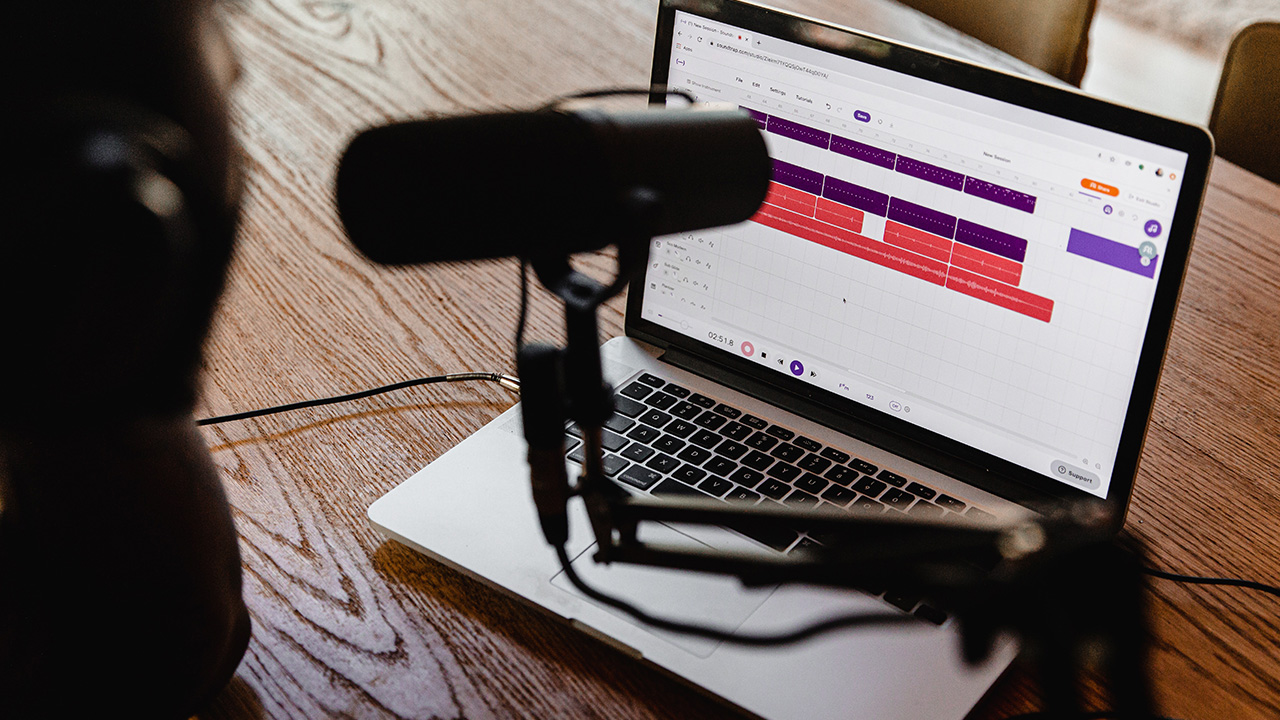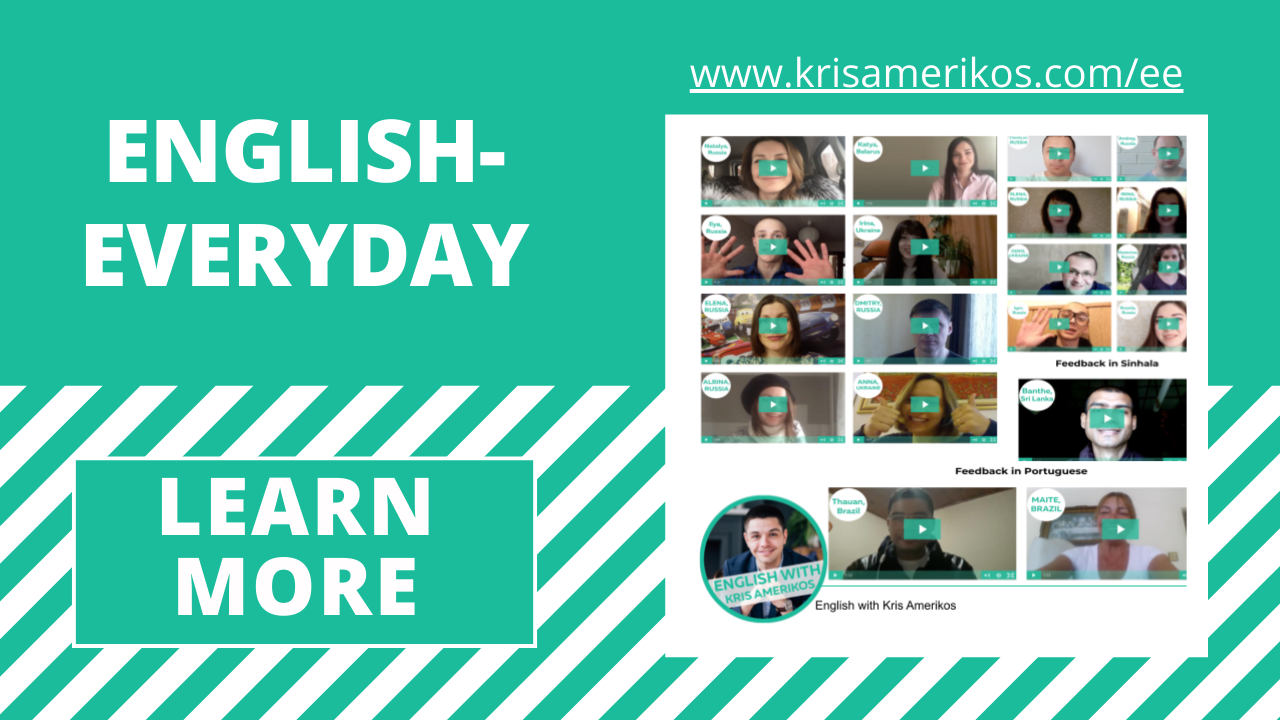How To Improve Pronunciation in English - Detailed Explanations

The challenges you face when pronouncing a word in English will depend on your first language. Some sounds exist in English that don’t exist in other languages (and vice versa) which causes non-native English speakers to make pronunciation mistakes.
There’s no shortcut to learning pronunciation in a foreign language. It will take a lot of time and a lot of practice to get the mouth to produce English sounds - but it’s not impossible. Some people might know the rules for pronunciation but may struggle to produce the correct pronunciation because of a lack of practice. Follow the tips in this blog to perfect your English pronunciation each and every day.
Why It’s Important to Have Good Pronunciation
We mustn’t confuse pronunciation and an accent. Pronunciation is important because it can affect the meaning of a word. An accent is not something non-native English speakers need to worry about if it doesn’t impede understanding.
Good pronunciation is important to ensure that we say exactly what we want to say. If our pronunciation is good then the person listening to us will be able to understand us easily and it will eliminate the dreaded language barrier. The biggest pronunciation mistake people can make is replacing one sound with another sound. When you do this, you might say an entirely different word from the one you wanted to say. Good pronunciation will help others understand you.
What Is The Best Way to Practice Pronunciation
The best way to practice pronunciation is with a native English-speaking partner. An English speaking partner will tell you if your pronunciation is correct and they will be able to show you the correct mouth and tongue position to pronounce words correctly if you’re making mistakes. If you would like to practice pronunciation on your own then listen to the word, mimic the mouth-shape of a native speaker and record yourself saying the word. Listen to a native speaker saying the word and compare it with your recording. Keep practicing until you’re happy with your pronunciation.
How Can We Improve The Poor Pronunciation?
Firstly, listen to native speakers and expose yourself to the sounds of English - it doesn’t matter if you don’t understand everything. Next, slow down. Don’t rush through words you can’t pronounce because it’ll be more difficult to understand you. Finally, practice difficult sounds and record yourself so you can correct yourself.
Advance Tips For Improving English Pronunciation
Once you have mastered the sounds of English then you should practice difficult sounds next to each other. Consonant clusters at the beginning and end of words (split, screw, attempt, masks) can be challenging. Practicing these sounds next to each other will improve your pronunciation. Don’t forget to practice difficult sounds in the beginning, middle and end of the word. Practice tongue twisters to train your mouth to make new sounds and get comfortable moving your mouth in new ways.
What is English Everyday
English-Everyday is an English course with live lessons for English learners who want to improve their English with native speakers, professional teachers, and students from around the world.
You have live lessons where you can join every day. You can review all record lessons. There is a calendar of scheduled lessons so you can see when lessons are and at what time you can join.
In English Everyday program, you have support and also you have student chat where you can speak with other students from all around the world. You can look at our feedback page so that you can know from which countries our students are. Before you join our program, we strongly recommend you sign up for our free seminar with Kris Amerikos, where you can learn:
- What goals you need to have to get better results
- How to become fluent in English very quickly
- What you need to do to have perfect pronunciation
- The 3 biggest mistakes you need to avoid
- Which free resources will help you learn English
- The best resource to use to improve your speaking
Top 15 Tips for Improving English Pronunciation
English pronunciation is difficult. The level of difficulty will depend on how close or how different the sounds in English are from your mother-tongue language. Some languages have the same sounds as English while others do not have the same sounds. This will have a significant impact on a non-native English speaker’s ability to speak English well.
Perfect your pronunciation, sound like a native English speaker and master the English language with these tips.
Listen
Babies listen to a language for months before they can say their first words. During this time, they babble to get used to the sounds of a language. Non-native English speakers don’t have the time to only listen to a language - but we mustn’t forget to listen to a new language to perfect our own pronunciation.

Many non-native English speakers become overwhelmed when listening to English movies, podcasts or native speakers because they don’t understand everything. However, understanding everything shouldn’t be the main goal. Our brains do a lot of work when we’re listening, and listening to native English speakers will help our brains to identify the sounds of the language. We must expose ourselves to a language instead of only learning a language and its grammar rules.
Learn The Rhythm Of Spoken English
English has a rhythm. If you listen to native English speakers, you will start to notice a pattern. Native English speakers only stress the most important words in a sentence. Non-native English speakers should identify this rhythm when listening to native English speakers and try to mimic it. Don’t hesitate to pause and repeat sentences or phrases the next time you’re listening to a podcast or a movie. Repeating full sentences with good rhythm and intonation will help you improve the rhythm and intonation of your own sentences.
Intonation, word stress and sentence stress have a big impact on the meaning of a sentence and how the listener understands the meaning of the sentence. Listen to how native English speakers change their tone when they are happy, sad, angry or when they are being sarcastic. Pay close attention to the stressed syllable in words and the stressed word in sentences. These are the subtle elements of pronunciation that change the meaning of a sentence.
Use A Mirror
If you’re struggling to make the same sounds as a native English speaker then use a mirror to help you practice. Watch your mouth carefully and make sure that your mouth, tongue and teeth are exactly the same things as a native English speaker. Every mouth position is important when you say a word. Make sure that your mouth shape copies the native speaker’s mouth shape from beginning to end. Some end sounds are so subtle that it’s difficult to hear them but the way the mouth finishes a word is just as important as how it starts the word. Soft end consonants like ‘n’ in ‘fan’ and ‘l’ in ‘ball’ need the mouth to close on the sound for the word to sound correct. Finishing a word correctly is the difference between saying ‘go’ and ‘goal.’

Slow Down When Speaking
Most people try to rush over unfamiliar words that they don’t know how to pronounce. Unfortunately, this does nothing to help perfect pronunciation and it will not help the listener to understand you either. The benefit of slowing down is that you might produce the first half of the word correctly and then the listener will be able to assume the rest or help you finish the word you’re trying to say. If you rush over a word, then the chance to be understood is gone.
Overcome your pronunciation fears by focusing on the sounds and words that are the most difficult for you to produce. Once you master the most challenging sounds in English, you will be able to communicate confidently. It can be difficult to face those fears, but exercising the mouth and forcing it to produce new sounds and words will help you speak English better.
Picture The Pronunciation
Imagine the word in your head when you’re trying to say it. Try to think of each sound in the word and visualise them clearly before saying the word. This is a great way to practice unfamiliar pronunciations. Don’t shy away from making mistakes. You will need to make mistakes to perfect your pronunciation skills. Once you overcome them, you will be pleasantly surprised by how efficiently and effectively you communicate.
Exaggerate The Movements
You can overproduce and exaggerate the mouth shape when learning a new sound to make sure that you are making the desired sound. For example, if you want to make the ‘L’ sound then bring your tongue out of your mouth and touch it to the top lip. Over time, you’ll learn how to produce the same sound with your tongue further back on your teeth but exaggerating the sound will help form your mouth into the correct shape.

Accept That Spelling Is Unreliable
It’s better to listen to a word and repeat it than to rely on reading a word to know its pronunciation. English is not a phonetic language which means that we cannot rely on letters to make the same sounds in every single word. You can listen to a native English speaker say a word or listen to the word in an online dictionary to hear how it’s pronounced instead of only reading the word.
Learn The Tongue Positions
It’s easy to watch the mouth shape of a native speaker or see when they use their tongue on their teeth to produce a sound. The real challenge comes from the sounds made inside the mouth with the tongue. If you search for the ‘R’ sound in English on Google then you will find a diagram that shows you exactly what’s happening inside the mouth of a native English speaker. The same goes for the ‘n, ng, t, and d’ sounds. Train your tongue to make the same sounds by recreating the tongue position in the pictures and then using the sound in words.
Learn The Phonetic Chart
While it is not essential to know the English phonetic chart, it will become a lot easier to pronounce words in English if you are familiar with most of the sounds in the English language. The added benefit to knowing which sound each symbol represents in the phonetic chart is that you’ll be able to read the phonetic spelling of a word and know how to say it. All dictionaries have the phonetic spelling between two backslashes (/) to help you pronounce a word correctly.
For example:
The phonetic spelling of pronunciation is /prəˌnʌn.siˈeɪ.ʃən/
Each symbol is a phoneme that represents a sound in English. If you know how to produce these phonemes by reading the symbols then you will know how to pronounce the word without listening to it. Other useful clues in the phonetic spelling are the full stop (.) which separates the syllables, the apostrophe (‘) which indicate that the next syllable is the stressed syllable and the comma (,) which indicates that the next syllable is the secondary-stressed syllable.
Try Not To Break The Word Down Unnaturally
When we learn the pronunciation of a new word, we usually say the word very slowly which is a great way to practice the new word and the new sounds. Slowing down our pronunciation helps us to produce the correct sounds. However, we might lose the stressed syllable and stress every single syllable when we do this. If you want to break a word up into syllables, make sure that you don’t over pronounce each syllable. Instead, break the word up and say it slowly but naturally. Then you must practice drilling it faster and faster until you can pronounce the new word like a native English speaker.

Record Yourself
Have you ever thought you are a great singer but then you heard yourself in a recording and realized that your reality is not what everyone else hears? Well, the same thing can happen when we’re speaking a foreign language. We might think that we are pronouncing the word in the same way that a native speaker is saying it, however, it isn’t until we listen to a recording of our voices that we realize that we still have some work to do. A recording of our pronunciation allows us to objectively listen to ourselves and then compare it to a native English speaker. If you don’t quite sound the same as a native English speaker, then get in front of a mirror and figure out what you’re doing wrong.
Get An English-Speaking Partner
Learning English pronunciation at home can be a very frustrating process. While it is great to have the resources to learn a language on your own, it’s still a great idea to make use of an English-speaking partner who can help you fix your errors a lot faster. It can be difficult to find an English speaking partner, however, the internet has made it a lot easier. Don’t be afraid to reach out to an English speaker and ask them to correct your pronunciation. Their guidance will help you reach your pronunciation goals a lot faster than you can alone.
Perfecting pronunciation comes with a lot of self-study and help from an English speaker. Spending more time with native English speakers is another way of exposing yourself to English and hearing it in a natural environment.
Read Aloud
Reading out loud will not improve your reading skills but it can improve your pronunciation skills. The best thing about reading aloud is that you don’t need to construct the sentences - they’re already prepared for you. All you need to do is read the sentences out loud with the correct rhythm and intonation to perfect your pronunciation skills. If you record yourself when reading aloud then you will be able to hear whether or not you sound like a native English speaker.
Reading aloud is a great opportunity to practice your intonation. Focus on sounding bored and disinterested and then excited and happy. Make sure that you ask questions with rising intonation and use a falling intonation when you need to sound angry. Reading aloud can be fun and entertaining - so allow yourself to have fun with it. Learning a language shouldn’t be boring. You are guaranteed to remember more if you’re having fun.
Listen To Podcasts
English speakers who have podcasts are usually very well-spoken. They speak well and they speak clearly. Learning how to mimic these English speakers will help you to improve your spoken English skills. Podcasts will also allow you the opportunity to learn new words by listening to them. If you hear an interesting or unfamiliar word in a podcast then repeat it a few times, write it down and look up the meaning in a dictionary. In this way, you can learn new words by listening to the words first and writing them later. This will eliminate the confusion that can happen when we try to pronounce a word after reading it for the first time.

Speak, Speak, Speak
Finally, speak as much as you can and as often as you can. Don’t worry about being perfect. You will make mistakes - it’s the reality of learning a language. You mustn’t focus on being grammatically correct when you speak. You must practice speaking without thinking too much. It sounds very difficult, but it is the best way to improve your speaking skills. If you spend too much time in your head then the language you produce might be perfect but the person who is listening to you will probably lose interest in the conversation. Remember, being grammatically correct and communicating effectively are two separate things. You can communicate imperfectly and the more you practice, the more fluent you will become. Don’t put too much pressure on yourself and rather spend the time practicing as much as you can.








































